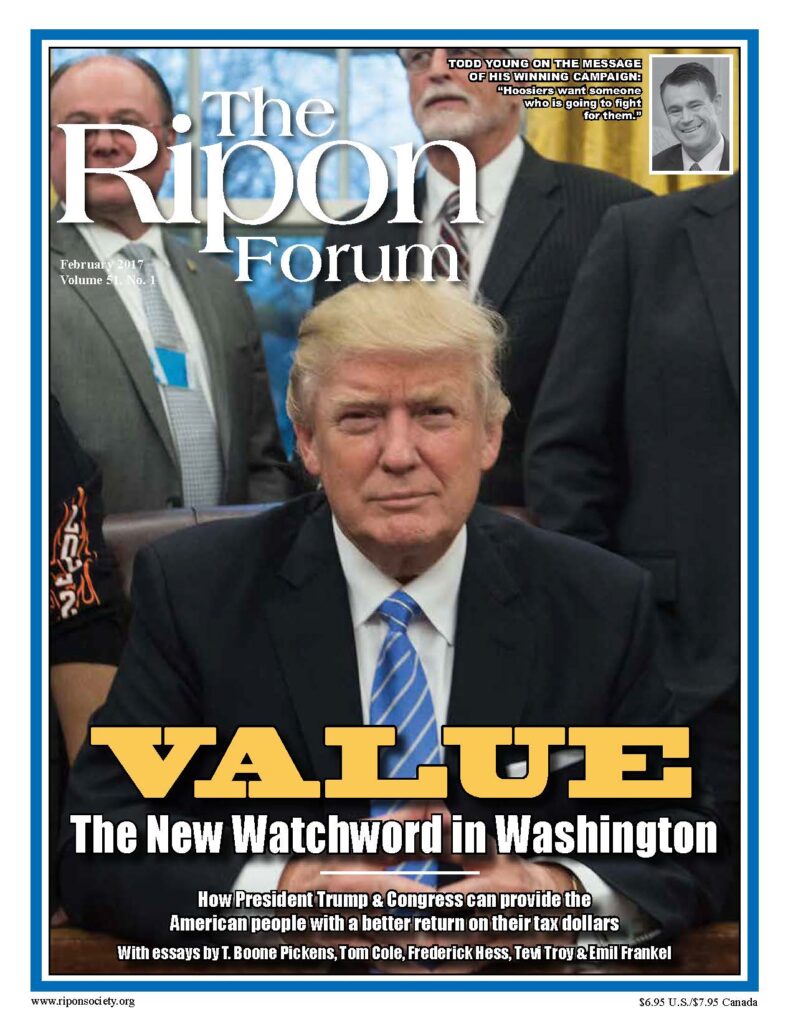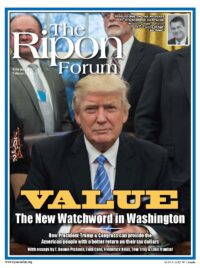
Five days after the inauguration, seven protesters climbed a crane in downtown Washington and hung a banner across the top.
From a political standpoint, the protest was a flop. The protesters were arrested at the end of the day, and the cause that they were promoting was quickly forgotten.
From a visual standpoint, though, the protest was a resounding success. For when viewing the crane from the Ellipse along Constitution Avenue, the banner appeared to be hanging directly over the White House.
The banner read, “Resist,”
The image soon went viral, and became a fitting symbol of the Trump Administration’s protest-filled early days.
And yet, when one thinks about the volatile first month of the Trump presidency, one could easily imagine another banner from our recent political past hanging above the White House – a banner that read, “Mission Accomplished.”
Indeed, to the extent that one of the President’s stated goals coming into office was to disrupt Washington and upend the old way of doing things, then the first four weeks of his term can be called a resounding success.
But just as George W. Bush’s mission was far from accomplished when he strode triumphantly across that aircraft carrier in 2003, so too is Donald Trump’s mission far from being accomplished as he tweets up a storm today. For in addition to being elected to upend Washington, he was also elected to make Washington work.
Chaos is easy. Governance is hard. And in that regard, America’s new President has a long way to go.
The goal of this edition of The Ripon Forum is to look at ways that the President and Congress can provide the American people with better value for their tax dollars. Poll after poll shows that Americans have lost faith in their government. Yet these same polls also reveal that Americans would like to have a government that works.
We look at areas where this can be accomplished with essays from leaders representing the world of business, politics, and academia. The leaders include: T. Boone Pickens, writing about energy; Tom Cole, writing about Social Security; Rick Hess, writing about education; Tevi Troy, writing about health care; and, Emil Frankel, writing about transportation and infrastructure.
This latest edition also includes an article about The Ripon Society’s 2nd Annual Survey of the American electorate. The survey asked the public for their opinions on issues ranging from health care to taxes to trade. In keeping with the theme of this edition, it also gets their take on Washington and the role of government in our lives. The results are very informative.
Also informative in this latest edition is an op-ed by Dan Mitchell of the CATO Institute looking at the size of government and its impact on a nation’s GDP. Gary Sasse of the Hassenfeld Institute for Public Leadership at Bryant University looks at the growing number of GOP Governors in New England and whether that could be the start of a trend that turns this blue region of the country red.
In our latest debate, Minnesota Congressman Tom Emmer squares off against Ana Quinana of the Heritage Foundation in a discussion about Cuba and why relations with the Communist country to our south should – or should not be – restored.
And in our latest Ripon Profile, newly elected Senator Todd Young discusses why his message resonated with voters and some of the challenges facing the Hoosier state this year.
As with all editions of the Forum, we appreciate your readership and welcome any thoughts or ideas that you may have.
Lou Zickar
Editor of The Ripon Forum
louzickar@riponsociety.orgs




